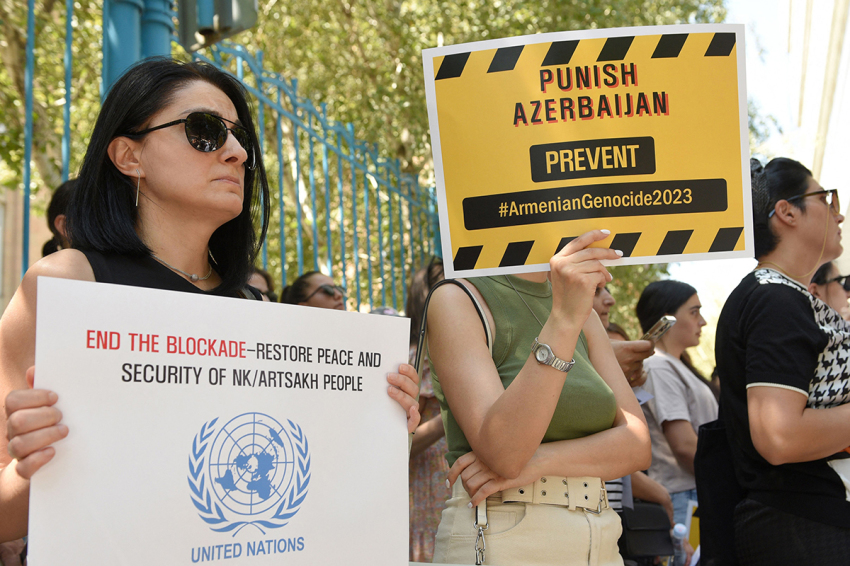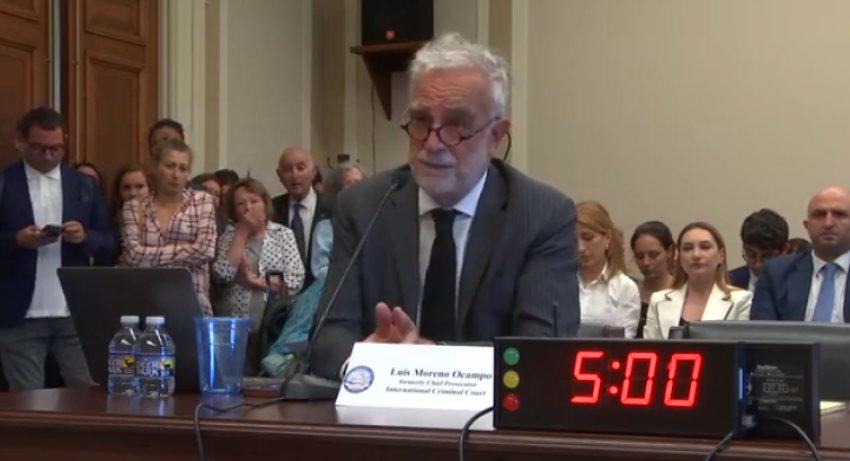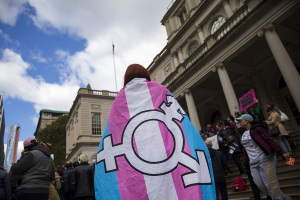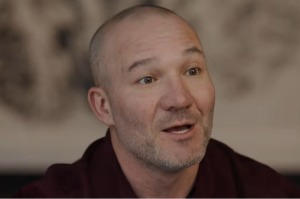Experts warn of 'genocidal intent' behind Azerbaijan’s blockade starving 120,000 Armenians

Experts warned a bipartisan congressional human rights commission Wednesday that the United States must be careful to avoid complicity in what they said could be an ongoing "genocide" against 120,000 Armenians living in Nagorno-Karabakh whom Azerbaijan forces have deprived of food and other crucial supplies for months.
The Tom Lantos Human Rights Commission held a hearing on the ongoing blockade of the Lachin Corridor, which connects Armenians to Artsakh, a self-declared Armenian breakaway state internationally recognized as part of Azerbaijan with a predominantly Christian population.
Azerbaijan sealed off the Lachin Corridor last December after regaining control of territories surrounding Nagorno-Karabakh after a six-week war with Armenia in 2020. Armenian forces had captured the territory in a conflict that ended in 1994.
A Russia-brokered armistice left the region connected to Armenia only by the Lachin Corridor, where Russian peacekeepers were supposed to ensure free movement.
Commission co-chair Rep. Chris Smith, R-N.J., led the hearing, which featured expert testimony from Luis Moreno Ocampo, an Argentine lawyer who served as the prosecutor of the International Criminal Court from 2003 to 2012; and David Phillips, the director of Columbia University's Artsakh Atrocities Project and an adjunct professor at Georgetown University.
As the U.S. government conducts negotiations, Smith said U.S. Congress must determine if what is happening against the Armenians is a genocide and what the government's duty is to prevent it under the Genocide Convention, an international treaty.
Smith highlighted Ocampo's written testimony, which cautioned the U.S. for taking on a mediatory role, warning that accepting the existence of "genocide" as part of a negotiation is "complicity."
During the hearing, Smith pointed out that two empty chairs were reserved for the U.S. State Department and the U.S. Agency for International Development (USAID), both of which did not respond to multiple invite requests.
During his testimony, Ocampo clarified that one misconception people have is that an action must involve many deaths before it's considered genocide.
The witness noted that the Azerbaijani security forces' blockade of the Lachin Corridor impedes access to food and other essentials, arguing that the intent to starve the Armenians is a genocidal action.

"There are many different forms of genocide. One form requires zero victim," he said. "Genocide, under Article 2-C, requires just to create the conditions to destroy the people. The crime is to create the conditions and blocking the Lachin Corridor with the life system for the Nagorno-Karabakh people is exacting the conditions."
"The physical issue is intentions. Can we say President Ilham Aliyev or anyone else in the Azerbaijani state has genocidal intentions? My thing was if you follow different quotes, then something very clear, the facts speak for themselves," he added.
"In December '22, the blockade of the Lachin Corridor started by people not formally connected to the states. However, in January this year, Secretary of State [Antony] Blinken called President Aliyev, asking him to remove it. President Aliyev didn't follow the request. In February, the International Court of Justice unanimously said to President Aliyev, 'This is creating risk for life of the Armenians in Nagorno-Karabakh' and ordered to open the Corridor. He did not follow. What he did instead was to create a security forces blockade."
In February, 15 judges from the International Court of Justice ordered Aliyev to remove the blockade, but the leader did not comply.
Ocampo said that Aliyev's actions send a "very clear signal" that he knows that the blockade puts lives at risk. According to Ocampo, this is a clear sign of Aliyev's genocidal intentions, as ICJ was clear about the consequences of the blockade and its impact on the Armenians.
"So when he is doing this now with security forces, obviously, he had intention to do that. That intention is confirmed because a few months later, he closed off all the traffic," Ocampo said. "For me, at this stage, there is no doubt that genocidal intentions are there."
In a report last month, Ocampo warned that there was a "reasonable basis to believe that a genocide is being committed," suggesting that starvation was being used as an "invisible genocide weapon." He called for the U.N. Security Council to intervene, which would be necessary because Azerbaijan is not a signatory to the statute that established the International Criminal Court.
Phillips agreed that Aliyev's actions could constitute genocide against the Armenians and discussed how Azerbaijan security forces are firing on Armenian farmers, shortening their food supply and terrorizing them with psychological torture.
In his testimony, Phillips argued that Aliyev has waged campaigns intended to dehumanize Armenian Christians.
Regarding the steps that the U.S. should take to prevent these atrocities, Phillips recommends enforcing the sanctions described in Section 907 of the Freedom Support Act, which restricts assistance to the government of Azerbaijan to prevent conflict with neighboring Armenia.
Phillips also cited the Global Magnitsky Act, which consists of targeted sanctions to combat human rights abuses and corruption.
On Wednesday, the U.S. Department of State announced that Blinken spoke with Aliyev about the situation in Nagorno-Karabakh earlier this month.
"[Blinken] reiterated our call to reopen the Lachin Corridor to humanitarian, commercial, and passenger traffic while recognizing the importance of additional routes from Azerbaijan," the statement read. "The Secretary underscored the need for a dialogue and compromise and the importance of building confidence between the parties. He pledged continued U.S. support to the peace process."
The bipartisan Tom Lantos Human Rights Commission was established by the House of Representatives in 2008 to promote and advocate for international human rights.
Samantha Kamman is a reporter for The Christian Post. She can be reached at: samantha.kamman@christianpost.com. Follow her on Twitter: @Samantha_Kamman



























